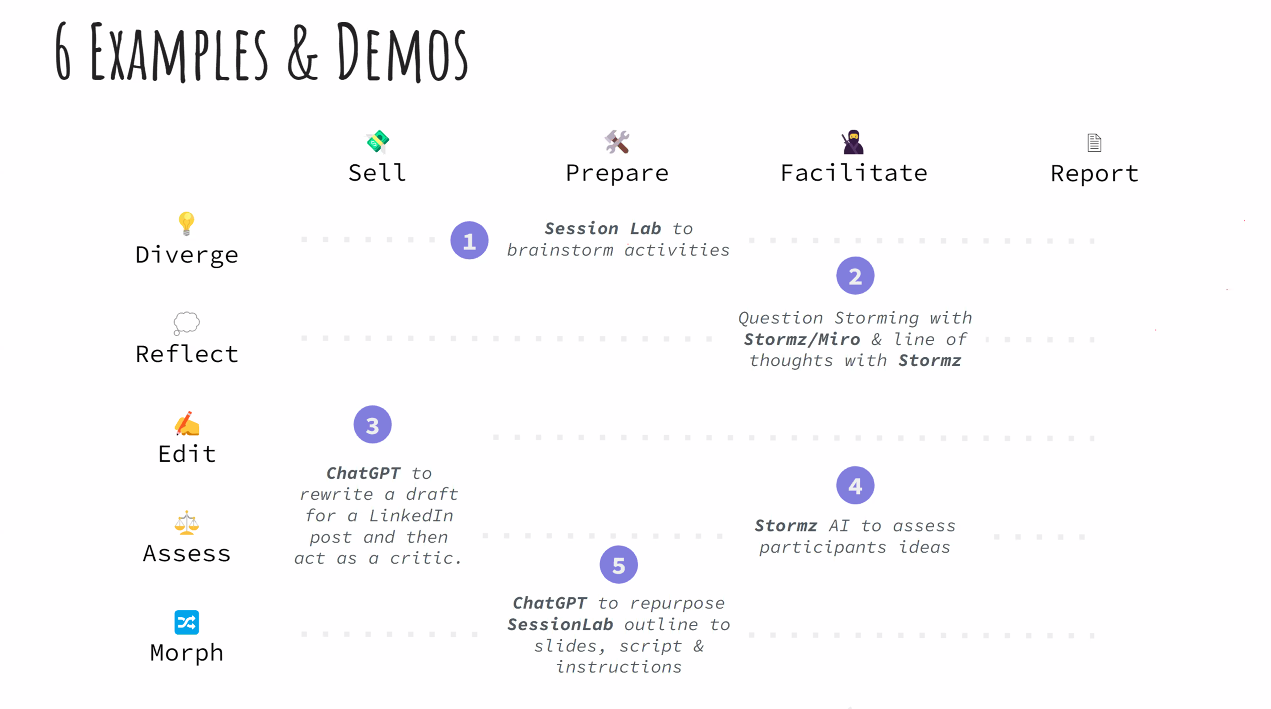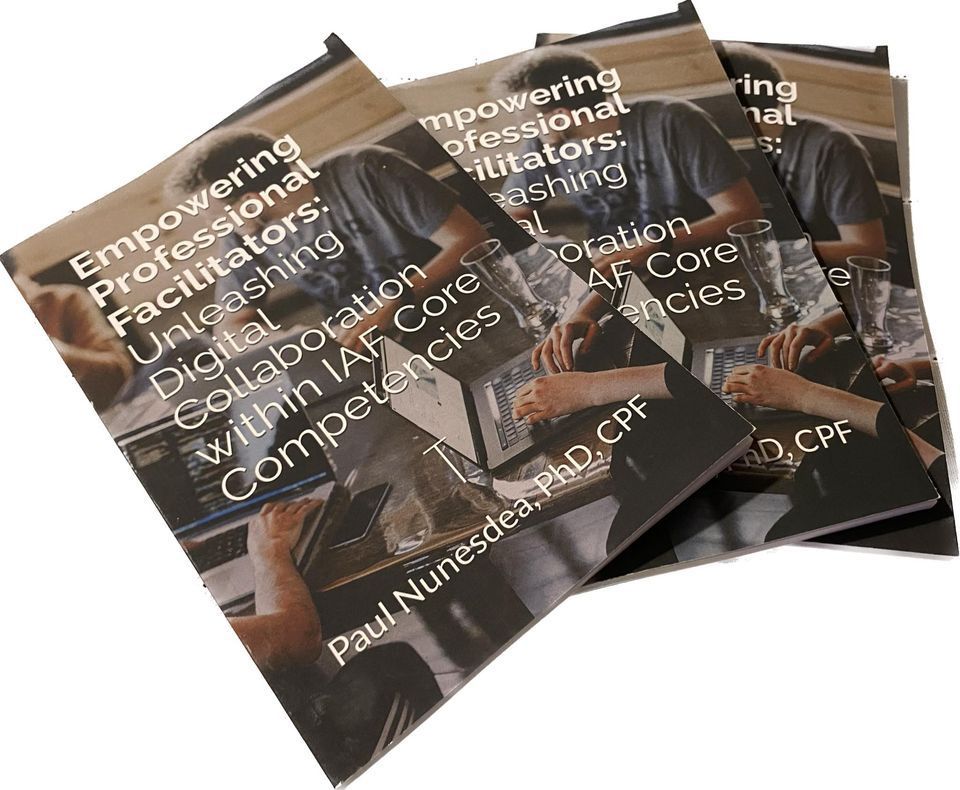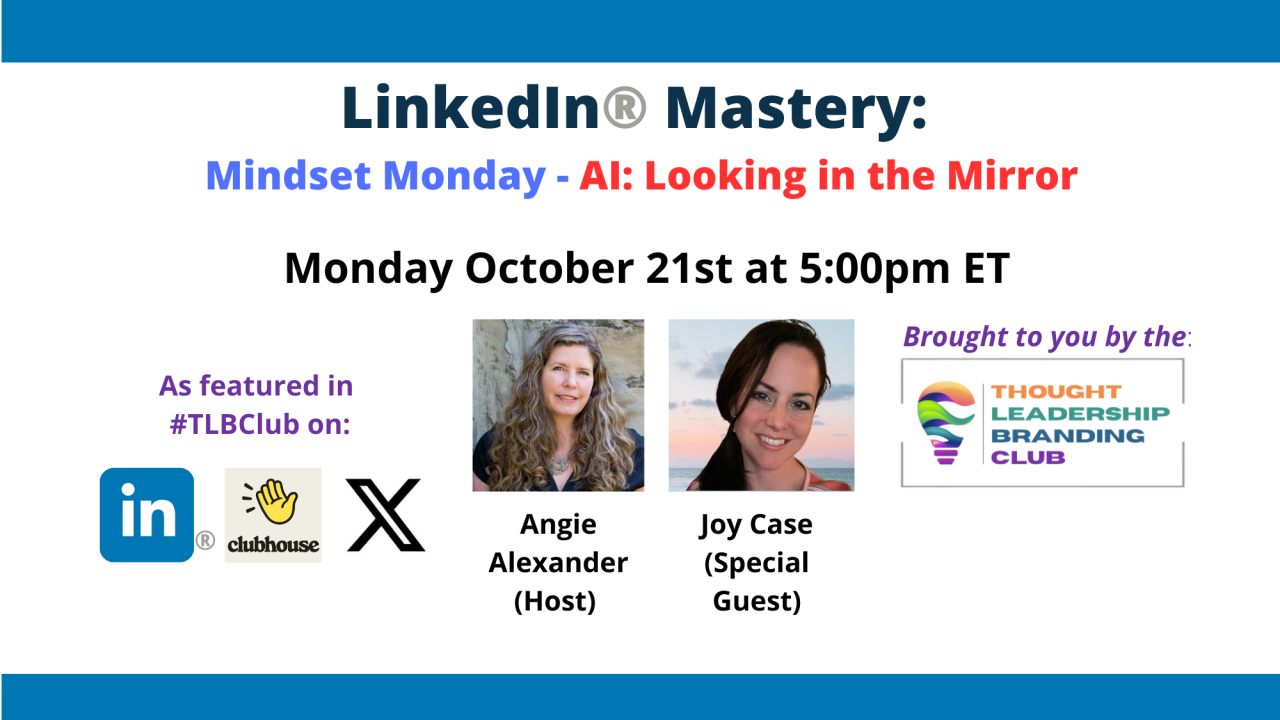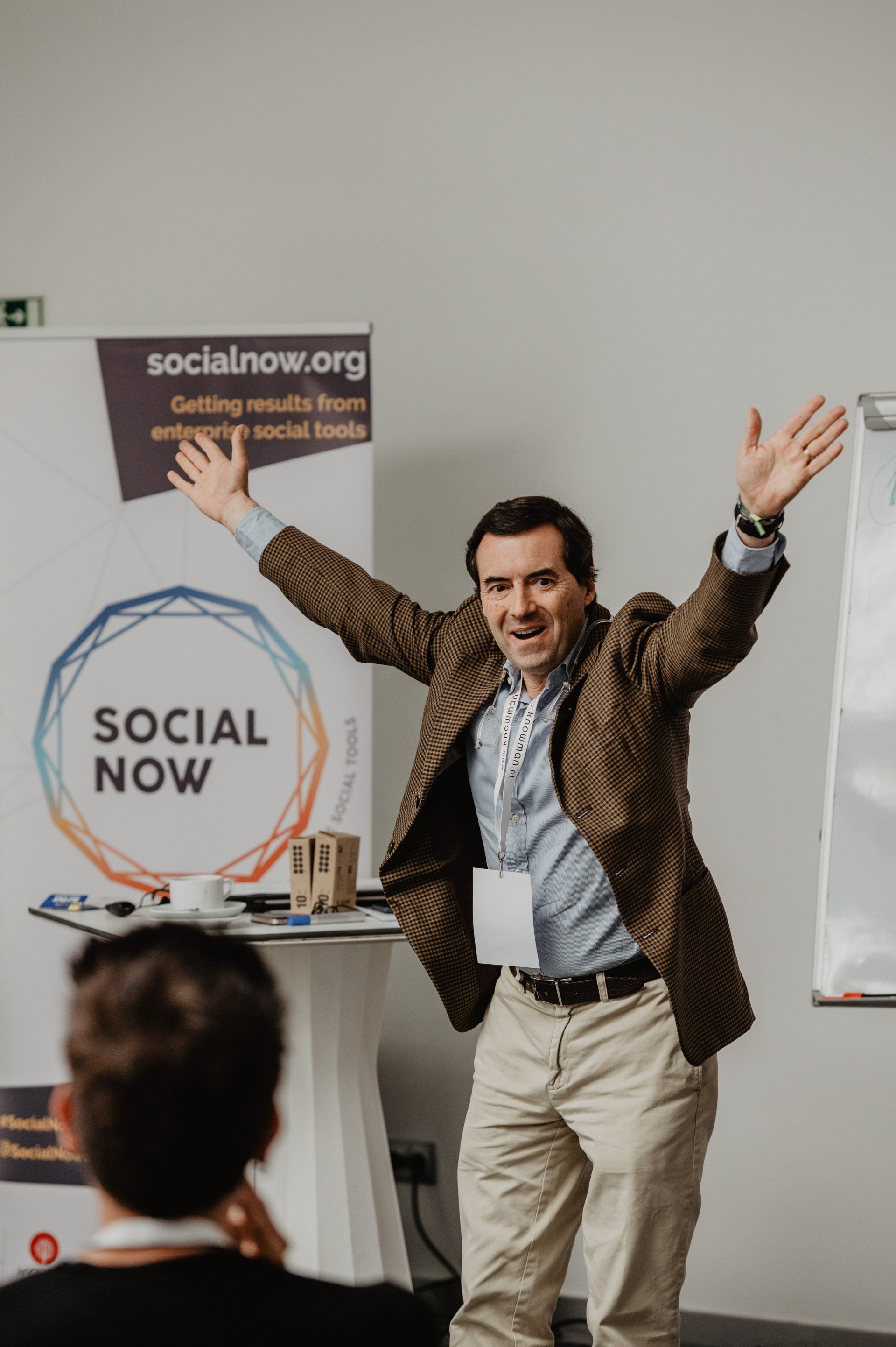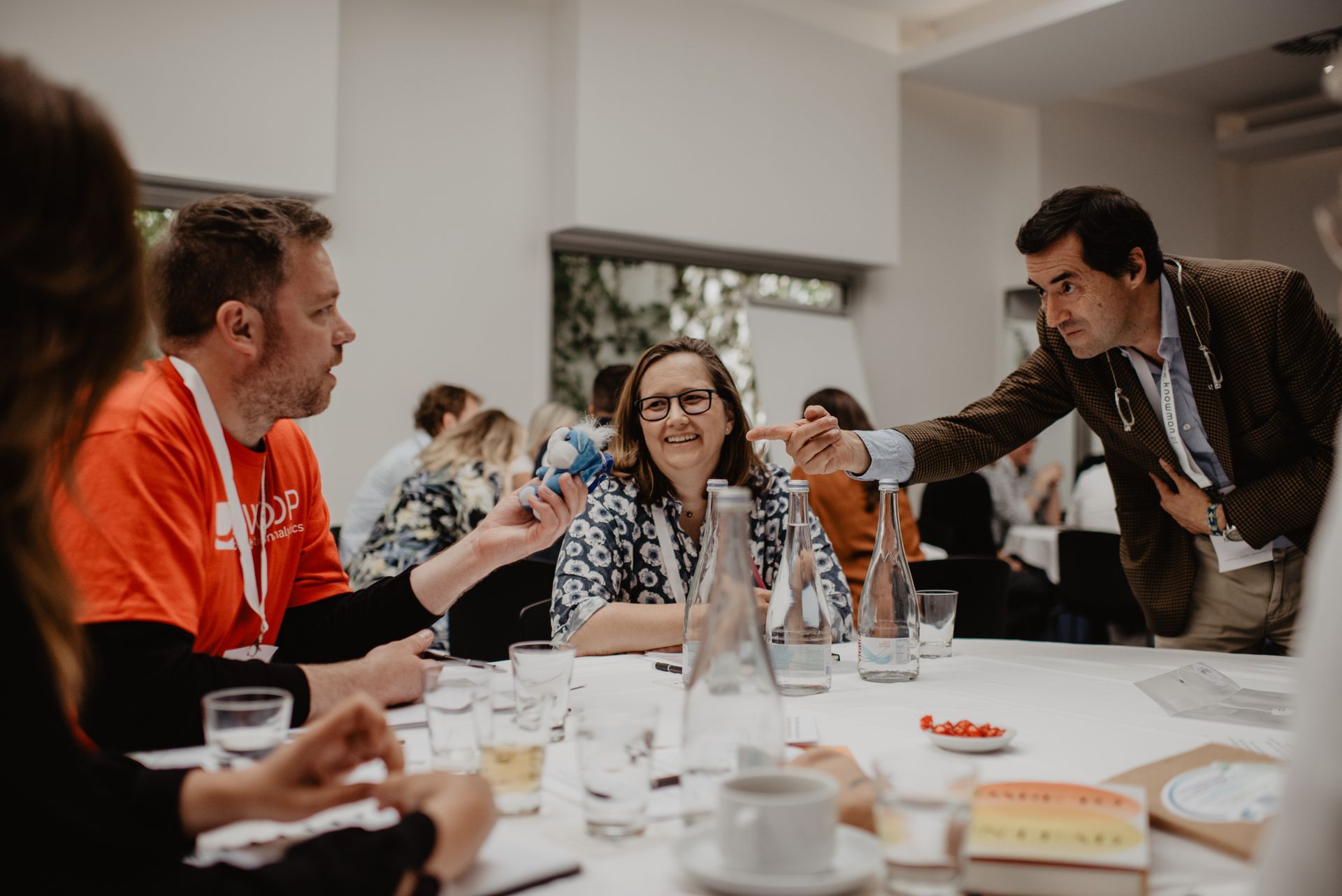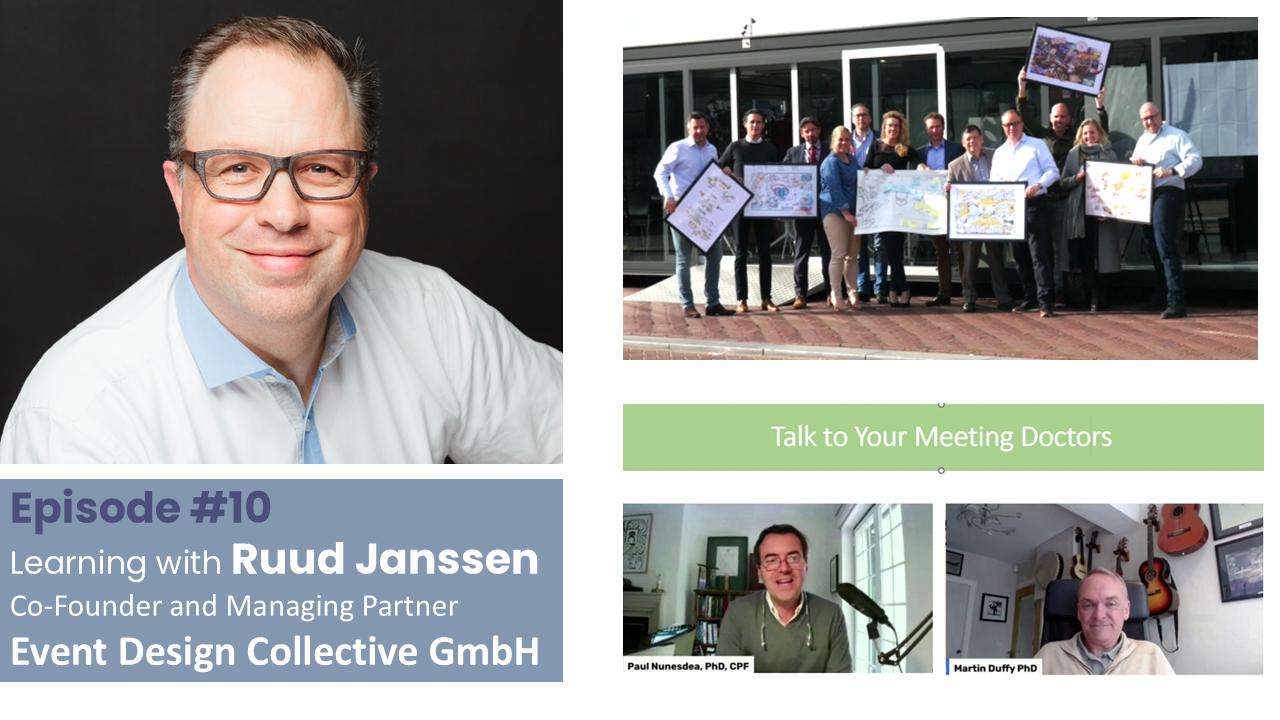
The Evolving Role of Facilitation: Integrating AI into Architecting Collaboration
Navigating the Intersection of AI and Human-Centric Facilitation
In my journey as a collaboration architect, I've consistently explored how facilitation can drive effective collaboration and innovation. The last IAF SIG meeting on AI and Group Facilitation I have hosted today, has provided fresh perspectives and deepened our understanding of how AI intersects with facilitation, offering new avenues to enhance collaborative processes. This reflection builds on my earlier work on the role of facilitation in architecting collaboration and examines how AI can be a transformative tool in this domain.(1)
Facilitation as the Heart of Collaboration
At its core, facilitation is about creating environments where collaboration can flourish. As articulated in my previous article, facilitation involves guiding groups to achieve shared goals, fostering meaningful dialogue, and managing group dynamics. Effective facilitation requires a blend of skills: empathy, active listening, and the ability to navigate complex group interactions. The integration of AI into facilitation practices introduces new tools and possibilities, but the fundamental role of the facilitator remains unchanged.
Personal Branded Facilitation: The Human Black Box
A fascinating parallel can be drawn between the concept of "personal branded facilitation" and the workings of AI black boxes. In both cases, we start with a given input—a specific group situation or challenge—and apply a transformation to deliver an output—a successful facilitation outcome.
- Input and Transformation: Just as AI models receive data and process it through complex algorithms to produce an output, facilitators take inputs from their interactions, group dynamics, and objectives and apply their personal skills, experience, and methodologies to achieve desired outcomes. This transformation process in facilitation is influenced by the facilitator's unique style, knowledge, and approach.
- Output and Results: The output of the facilitation "black box" is the result of this transformation, similar to how an AI model generates responses or recommendations. The effectiveness of this output depends on the facilitator’s ability to interpret and adapt to the needs of the group, much like an AI model's performance is contingent on the quality of its training and algorithms.
- Transparency and Insight: While AI black boxes often face criticism for their lack of transparency, personal branded facilitation offers an opportunity for reflection and continuous improvement. Facilitators can and should be transparent about their methods and seek feedback to refine their approach, ensuring that their "black box" remains open to growth and adaptation(2).
AI Tools: Enhancing Facilitation, Not Replacing It
The discussions at our IAF SIG meeting highlighted that AI tools can significantly enhance facilitation but should complement, not replace, the human elements of the process. AI can:
- Streamline Routine Tasks: Tools for automating note-taking, scheduling, and data analysis can free facilitators to focus on more nuanced aspects of their role. This efficiency allows facilitators to dedicate more time to understanding group dynamics and fostering engagement.
- Provide Insightful Analytics: AI’s analytical capabilities can offer insights into group behaviors and trends, helping facilitators tailor their approaches and interventions more effectively. These insights can inform decision-making and enhance the overall quality of facilitation.
- Personalize Experiences: AI can help create more personalized facilitation experiences by adapting content and activities based on real-time feedback from participants. This adaptability ensures that facilitation remains relevant and responsive to the needs of the group.
Human-Centric Facilitation: The Role of the Facilitator
While AI offers valuable support, the human element remains at the heart of facilitation. The role of the facilitator as a connector, motivator, and guide is irreplaceable. Facilitators must continue to:
- Cultivate Relationships: Building trust and understanding within the group is essential. AI can support this process, but the authentic connection between the facilitator and participants is crucial for effective collaboration.
- Navigate Complexity: Facilitation often involves managing conflicts, diverse perspectives, and unexpected challenges. AI can provide tools and data, but the facilitator’s skill in handling these complexities is key to achieving successful outcomes.
Reflecting on Personal Relationships with AI
As AI becomes increasingly integral to facilitation, it is crucial for facilitators to reflect on their personal relationship with this technology. Understanding and embracing AI is not just about adopting new tools but also about evolving professionally:
- Self-Reflection: Facilitators should take time to reflect on how AI influences their practice and personal style. This involves understanding their comfort level with AI, identifying potential biases, and exploring how AI can enhance their facilitation approach.
- Professional Growth: Embracing AI requires continuous learning and adaptation. Facilitators must stay informed about advancements in AI and consider how these developments can be integrated into their practice. Reflecting on one's relationship with AI will be essential for staying relevant and effective in the evolving field of group facilitation.
- Strategic Integration: Facilitators should consider how to strategically integrate AI into their workflows to enhance their effectiveness. This means not only using AI tools but also understanding their implications and ensuring they align with personal facilitation goals and values.
Strategic Integration of AI in Facilitation
Our meeting underscored several strategic considerations for integrating AI into facilitation:
- Knowledge Sharing: AI can enhance our ability to share knowledge by aggregating and analyzing information from various sources. This capability aligns with the goal of facilitating effective communication and collaboration. (3)
- Engagement and Adaptation: AI tools can help make meetings more engaging by adapting activities and content to the evolving needs of the group. This dynamic approach supports the facilitator’s goal of maintaining participant involvement and relevance.
- Ethical Considerations: As we incorporate AI into facilitation, we must address ethical issues related to data privacy, ownership, and the responsible use of technology. Ensuring that AI tools are used ethically aligns with the principles of transparent and respectful collaboration.
Looking Ahead
As we continue to explore the intersection of AI and facilitation, it’s crucial to maintain a focus on the human aspects of collaboration. AI can provide powerful tools and insights, but the essence of facilitation remains in guiding, supporting, and connecting people. By integrating AI thoughtfully and reflecting on our personal relationships with this technology, we can enhance our facilitation practices and continue to drive meaningful collaboration.
Thank you to all my IAF colleagues (Bogdan Grigore, Irene Maweu, Mike Rossius and Paolo Martinez) who contributed to the recent discussion and for sharing your valuable insights. It's a true privelege to share this journey with you. Let’s continue to leverage AI to support our facilitation efforts and further our mission of architecting collaboration.
Join our SIG on AI and the Future of Facilitation
Join us as we learn together about the capabilities and opportunities of AI for facilitation. Explore the potential and pitfalls. Be part of a community pushing at the edges of this vital development. If you would like to know more, drop me an email or to Irene Maweu,
Mike Clargo, or
Peter Seah and ask us about the new
IAF SIG on AI and Group Facilitation.

Footnotes:
(1) This article was written in dialogue with ChatGPT, an AI language model developed by OpenAI, which assisted in generating ideas, structuring content, and refining the final text.
(2)Transparency and Insight: While AI black boxes often face criticism for their lack of transparency, personal branded facilitation offers an opportunity for reflection and continuous improvement. Facilitators can and should be transparent about their methods and seek feedback to refine their approach, ensuring that their "black box" remains open to growth and adaptation. This transparency is further supported by the IAF Core Competencies, which provide a solid framework to guide our practice and ensure that our professional work can be evaluated against established standards, promoting better professionalism in facilitation.
(3) Introducing Empowering Professional Facilitators, the latest addition to the Architecting Collaboration series. This book explores the transformative impact of digital collaboration tools on professional facilitation, highlighting their relevance in today's dynamic work environments. Join the conversation, explore the digital frontier, and enhance your facilitation practice. Order your copy today for a more collaborative and inclusive future. Kindle and paperback editions available here.
About us
My Meeting Support, through its parent company col.lab | collaboration laboratory Ltd, aims to revolutionize the way events and training programs are managed. By bringing together a community of experienced facilitators and leveraging the power of digital tools for collaboration we provide services that are not just about executing an event or a training session, but about crafting unique experiences that promote collaboration, learning, and engagement. It's about fostering connections and creating environments where ideas can thrive and lead to actionable outcomes. This approach ensures that every event is not just a fleeting moment but a lasting impact.
"Talk To Your Meeting Doctors" is a dynamic and engaging series that aims to address common challenges faced in meetings and offer expert advice and strategies to enhance meeting effectiveness. As co-hosts, Martin Duffy and Paul Nunesdea bring their wealth of experience and expertise to the forefront by hosting conversations with renowned guest speakers sharing practical insights and facilitating discussions on topics such as meeting design, participant engagement, decision-making processes, and fostering a culture of collaboration.
This LinkedIn Live event series serves as a valuable platform for professionals from diverse industries and backgrounds to gain actionable knowledge, exchange ideas, and discover innovative approaches to optimize their meeting experiences.
Check out the next upcoming episodes: here
Additional References and Resources
The following references provide a deeper dive into the ways AI is shaping the future of facilitation, offering insights, practical tools, and thought-provoking discussions for facilitators looking to enhance their practice in this digital age.
Books and Articles
- How the Best Leaders Prepare Teams for the Future of Work by Karen Holst Tudhope
- Human Centered AI by Brent Winslow, Ozlem Ozmen Garibay
- CSCW and Artificial Intelligence edited by John H. Connolly, Ernest A. Edmonds
- Artificial Intelligence and the Future of Humans by Janna Anderson, Lee Rainie and Alex Luchsinger, Pew Research Center
- "Using AI and transformative tech to super-charge your high performing team: it’s all about moving from reactive to proactive" by Henrietta Bennett and Isobel Mayers-Head
This article discusses how AI can enhance team collaboration through advanced analytics, real-time feedback, and personalized engagement strategies, offering practical examples of AI in action. - AI and Meeting Facilitation Medium Article by Grant Tate
Online Resources
- Mike Clargo, Meeting Toolchest: Workshop and Meeting Design Configurator. AI Configurator for designing meetings and workshops and preparing all the materials automatically
- "AI Tools for Facilitators" (FacilitatorU)
A comprehensive guide to various AI tools available for facilitators, including reviews and practical tips on how to integrate these tools into your practice. FacilitatorU offers courses and articles focused on enhancing facilitation through technology. - Exploring AI in Facilitation (Voltage Control Blog)
- The Role of AI in Modern Facilitation (Miro Blog)
Miro, a popular digital whiteboard tool, regularly publishes blog posts and guides on using AI to enhance online and hybrid facilitation sessions. Their insights on AI-driven tools are especially useful for digital facilitators. - "AI for Facilitators: Webinar Series" (International Association of Facilitators - IAF)
IAF has hosted several webinars exploring the role of AI in facilitation, featuring industry experts discussing the latest trends and tools. The recordings and related materials are available on their website. - North Star Facilitators Resources Page.
- StormZ Facilitation Toolbox.
Conferences and Workshops
- IAF Facilitation Summit 2024
The IAF hosts annual summits that often include sessions on the latest technologies in facilitation, including AI. This global event is a great way to network with other facilitators and learn about cutting-edge tools and techniques. Learn More and Register here

Follow Us
"Be brave enough to start conversations that matter and shift the direction of change for the better."
col.lab | collaboration laboratory is a spin-off from the book series " Architecting Collaboration " and our privacy policy can be consulted here
My Meeting Support is an event services brand by col.lab | collaboration laboratory






